John Is it true that God has given us a blank check to ask anything of Him just as one might ask a genie in a fairy tale?Ezra the Scribe (4th century BC) wrote in Aramaic (as did the prophet Daniel), and later the Men of the Great Assembly established Aramaic script to be standardized for writing purposes After the return of the exiles, Nehemiah later complained that assimilated Jews could no longer speak the Jew's native language ie, Hebrew ( Neh )Following is a listing of some linguistic and Biblical authorities who maintain or support a belief in a Hebrew/Aramaic origin of the Brit Chadash (sn New Testament) Matthew Black, An Aramaic Approach to the Gospels and Acts, third edition, entirety D Bivin and R B Blizzard, Understanding the Difficult Words of Jesus, entirety E W

John 16 23 In That Day You Will Not Question Me About Anything Truly Truly I Say To You If You Ask The Father For Anything In My Name He Will Give It
John 16 23-24 original aramaic
John 16 23-24 original aramaic-In Christian theology, the gender of the Holy Spirit has been the subject of some debate in recent times The grammatical gender of the word for spirit is feminine in Hebrew (רוּחַ, rūaḥ), neuter in Greek (πνεῦμα, pneûma) and masculine in Latin ()The neuter Greek πνεῦμα is used in the Septuagint to translate the Hebrew רוּחַJohn 11 Aramaic Peshitta verse taken from the Khabouris Codex Jesus' original teaching was in Aramaic, because In three places (John 1116, 24 and 212) he is given the name Didymus (Δίδυμος), the Greek word for a twin In fact, "the Twin" is




Where Does Jesus Say I Am God In The Aramaic Bible
Essentially Yeshua is a nick like mike for micheal ,but communicated Jesus in hebrew Back in the day Jesus was called either Yehoushua or Yahousha the prefex Yah of the later connotes Jesus as the fulness of the Godhead (Jesus is God in the flesh) The english use of Jesus was begun only about 700 years agoIn fact, the time is coming when anyone who kills you will think they are offering a service to God 3 They will do such things because they have not known the Father or me 4 I have told you this, so that when their time comes youJohn 23 In that day you will no longer ask me anything Very truly I tell you, my Father will give you whatever you ask in my name 24 Until now you have not asked for anything in my name Ask and you will receive, and your joy will be complete III
Aramaic is used by more than a dozen cults to reject biblical doctrines, rather than to elucidate the meaning of the text Nevertheless, Lamsa argued that the original Aramaic text of the Bible was the Syriac Peshitta, hence his magnum opus comprises an English translation of this document, titled The Holy Bible From Ancient Eastern ManuscriptsJohn 1624 (1) He looks back upon their practice hitherto Hitherto have you asked nothing in my name This refers either 1Some may misunderstand this to be the case, but I John 514 qualifies what He will grant Now this is the confidence that we have in Him, that if we ask anything according to His will, He hears usReal prayer is communion with God, and what is necessary for
This is what the Bible said in the ancient Aramaic, according to Neil Douglas Klotz (Prayers of the Cosmos, pages 8687;Testament" from Eastern Aramaic to JudeoAramaic (NeoAramaic)2, played with the idea that the Aramaic Tanakh and the earliest manuscripts of the western MT began to be composed around the same time On the other hand, my father believed that the Aramaic could have been the main source text for MT For1) My Aramaic research blog which keeps track of Aramaic in scholarship and the media at large It's mostly academic in nature with a dash of snark and parody here and there 2) My onagainoff again work on public domain versions of the Canonical Gospels (and possibly the Gospel of Thomas as well) that I call "The Aramaic Words Translation




Aramaic Bible Perspectives And Spirituality Posts Facebook



3
John , 164b15 Calls, Gathers, Enlightens and Sanctifies Friends, may grace and peace be yours in abundance in the knowledge of God and Christ Jesus our LordJohn 1624 ܥܕܡܐ ܠܗܫܐ ܠܐ ܫܐܠܬܘܢ ܡܕܡ ܒܫܡܝ ܫܐܠܘ ܘܬܤܒܘܢ ܕܬܗܘܐ ܚܕܘܬܟܘܢ ܡܫܡܠܝܐ ܀ (translation Aramaic NT Peshitta) 中文 čeština Nederlands Français ქართული ენა Deutsch Italiano 日本語 한국어 Português Pyccĸий Srpski, Српски Español Svenska alog isiZuluThe Greek word translated "again" actually has two meanings it can mean not "a second time" but also "from above" Whenever it is used elsewhere in John, it means "from above" (Jn 1911, 23) That is what Jesus appears to mean in John 3 when he speaks with Nicodemus a person must be born from above in order to have eternal




Hebrew Aramaic Words In The Greek New Testament Bibtheo



Http Digitalcommons Butler Edu Cgi Viewcontent Cgi Article 1502 Context Wordways
1516 One word that the Greek translators often misunderstood, was the Aramaic word >L which normally means to go or to depart , but is used idiomatically in Aramaic to mean that some action goes forward, and that something progresse s more and moreMurdock 1 Christ comforteth his disciples against tribulation by the promise of the Holy Ghost, and by his resurrection and ascension 23 assureth their prayers made in his name to be acceptable to his Father 33 Peace in Christ, and in the world afflictionJohn 11 In the beginning was the Word, and the Word was with God, and the Word was God Wow what a profound statement right here Let's investigate through Jewish eyes what it means to be the Word, in the Targum



Journals Sagepub Com Doi Pdf 10 1177



2
23 In that day you will no longer ask me anything Very truly I tell you, my Father will give you whatever you ask in my name 24 Until now you have not asked for anything in my nameJohn 3 Peshitta Holy Bible Translated 16 For God loved the world in this way so much that he would give up his Son, The Only One, 24 For Yohannan had not yet gone to prison 25 But there was a dispute between one of Yohannan's disciples and a certain Judeaen about purificationAlso noted in Braden's Secrets of the Lost Mode of Prayer, pages ) According to Klotz, John 16 2324 has been edited of this method
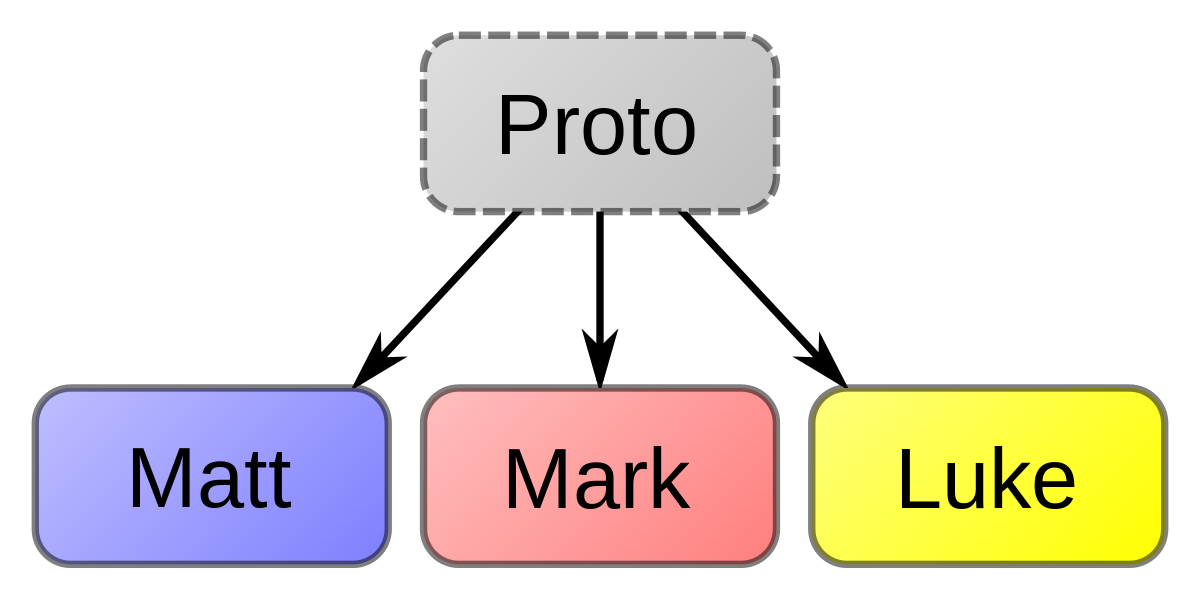



Hebrew Gospel Hypothesis Wikipedia



Www Jstor Org Stable
He spoke Aramaic, and we have no original writings of Aramaic of him or about him My response We don't know if he spoke Greek or not so you cannot conclusively say that heAramaic NT Parallel English Translations Etheridge Juchanon / John 16 >Jul 7 at 1623 Add a comment 2 Answers Active Oldest Votes when translating the text from the original Aramaic into Greek If John originally wrote in Greek, or if he wrote originals in both scripts, then he could have chosen to preserve the term Messiah in the original Aramaic dialect and provide the literal Greek translation
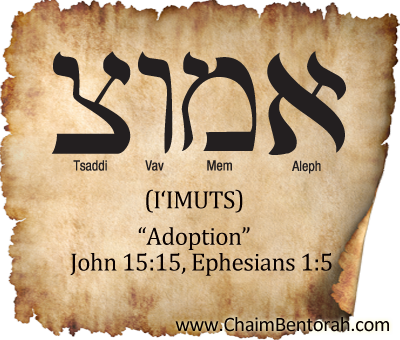



Aramaic Word Study Adoption Chaim Bentorah




Pdf Did Jesus Really Teach His Students In Aramaic Some Reflections Of The Language Used In Palestine At The Beginning Of The Common Era
These letters were written in Greek For example, Greek word Antichristos in 2 John 17 of Crawford Codex This word is never used in Aramaic Peshitta Unlike 2nd Peter, Jude, 2nd John and 3rd John, Aramaic Revelation (in Crawford Codex) is believed to be a copy of Original Aramaic Revelation written by Apostle JohnVerses 1623, 24 On which occasion, the guidance of external truth is no longer sought for, but the guidance of internal truth in connection with the Lord's Divine Humanity, which alone brings fullness of satisfaction Verses 1625, 26, 27 Therefore the instruction of external truth must precede, and be succeeded by that which is internal, inWhile it is possible that Jesus and some of his apostles knew and used Greek (at least on certain occasions), it is clear that their primary language of communication was Aramaic and, quite possibly, Hebrew as well Here is the key evidence The New Testament records several unmistakable instances of Aramaic usage Most notable is Mark 541, where Jesus raises Jairus'



Speech Act Reading Of John 9 Chapter 4




Chapter 14 Mark 11 16
So I read John 1624 in Vic's translation from the ancient Aramaic, Ask and be satisfied that your joy is complete Thank you for the excellent question See John Without Ulerior MotivesMay 23, 21 Hope Lutheran Church Rev Mary Erickson Acts 2121;(John calls it Hebrew, as he is prone to do with Aramaic words, eg John 1913) (Kysar, John (Augsburg Commentary on the New Testament), 300) Though something might be lost in translation, for John's purposes the word means "teacher" (John 16) John's definition provides the text's own internal meaning of the term




The Watchers In The Bible Scripture Meaning And Quotes
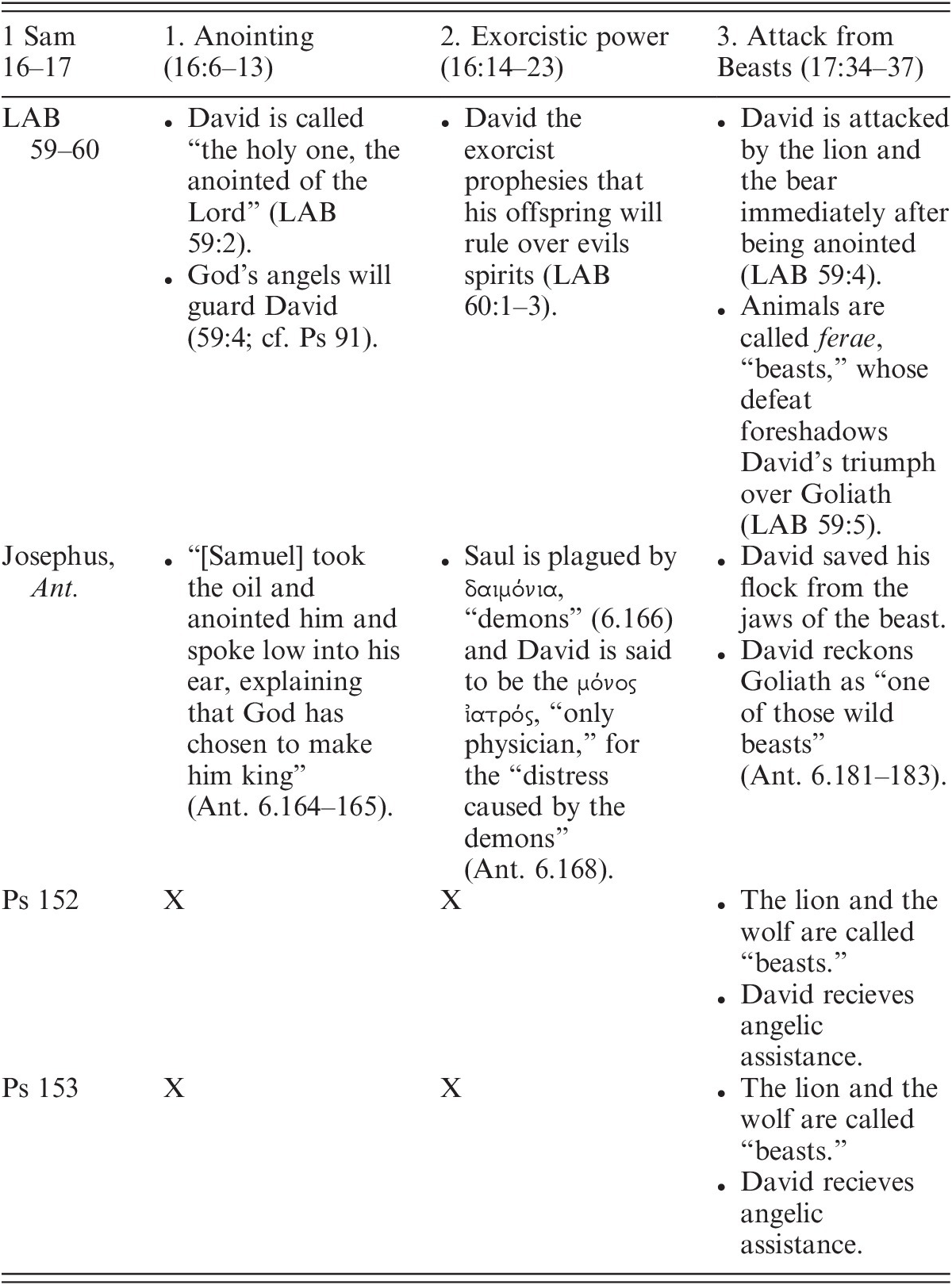



Christening Jesus Of Nazareth Chapter 3 Jesus Christ As The Son Of David In The Gospel Of Mark
John 1623, CSB In that day you will not ask me anything Truly I tell you, anything you ask the Father in my name, he will give you Context Summary John 1616–24 once again reminds the disciples that Christ must suffer and die for the sins of the world (Mark 1) The days ahead will be especially dark and frightening for those who soAnd in that day you will ask me nothing Verily, verily, I say unto you, Whatsoever ye shall ask the Father in my name, he will give it to you ( John 1623) You're not to ask Me, your prayers are to be unto the Father They are to be in the name of Jesus Christ And our prayers today should actually be addressed to the Father in the name of JesusThe fact that the first VERB (theōreō) is PRESENT TENSE in both John 1616 and 17 and the second (horaō) is FUTURE TENSE in both John 1616 and 17 seem to support the synonymous theory 1618 So they were saying This is an IMPERFECT TENSE which can mean (1) they were saying over and over or (2) they began to say




Was The Gospel Of Matthew Originally Written In Aramaic Neverthirsty
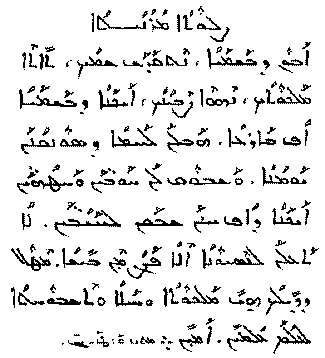



Quotes The Bible In Aramaic Quotesgram
1018 – note that Isaiah 1412 renders " Lucifer" from t he Latin Vulgate but this w ord does not appear in the original Hebrew or Aramaic The w ord ܐ ܐ YALAL means to " w ail" or " how l" in pain and is properly translated by Dr Lamsa as " how l in the morningIt would be the cousin word "tebel" from the Hebrew if Jesus said this in Aramaic Tebel meant the inhabited world, all its inhabitants It is translated "cosmos" in Koine Greek to mean the entire human race Pythagoras first used the term cosmosJohn 1623 "In that day you will not question Me about anything Truly, truly, I say to you, if you ask the Father for anything in My name, He will give it to you και Conjunction {kahee} – και And, also, even, indeed, but εν Preposition {en} – εν In, by, with etc εκεινη



3



Repository Upenn Edu Cgi Viewcontent Cgi Article 1129 Context Dropsietheses
The Apostle Matthew wrote his Gospel in Hebrew letters or Hebrew Perhaps this was really the Aramaic language in Hebrew letters Of the Hebrew Matthew there is no doubt, although few Christians are aware of this The original Hebrew version was maintained by a group known as the Ebionites The Aramaic text in Hebrew letteringIn the Gospel of John, chapter 3, Jesus has a famous conversation with Nicodemus in which he says, "You must be born again" The Greek word translated "again" actually has two meanings it can mean not only "a second time" but also "from above" Whenever it is used elsewhere in John, it means "from above" (John 1911, 23)1st Century Judeans usually had Hebrew names even though they spoke Aramaic Mark and Luke were likely Greek or Greek Jews Here is what their real names likely were Hebrew Mattithyahu (Matthew) Hebrew/Greek Hyphonated IoannesMarkos (JohnM




Andrew Gabriel Roth Aent Appendix Pdf Hebrew Language Paul The Apostle



Original Aramaic New Testament Theword Modules
Aramaic was the primary language of the Galilee and the common language that Jesus and Paul spokeI was hoping someone could help me with a discussion I entered into on another forum about the different versions of John I came across a reference in a book that referenced Douglas Klotz's translation of the 'ask and ye shall receive' part of the King James Bible The Peshitta and King James Version are veryThe Netzarim (Nazarenes) – the original followers of Jesus – referred to our Savior as "Yeshua" as retained in Aramaic The Gospel journeyed East in the Aramaic language more than a decade before travelling West in Greek;



But She The Spirit The Paraclete Will Teach You Everything




John
John New King James Version (NKJV) 23 "And in that day you will ask Me nothing Most assuredly, I say to you, whatever you ask the Father in My name He will give you 24 Until now you have asked nothing in My name Ask, and you will receive, that your joy may be fullThe Aramaic word that can change your thinking is Memra Please read on!John 16 16 1 "All this I have told you so that you will not fall away 2 They will put you out of the synagogue;




Are There Different Loves In John 21 Psephizo




Exploring The Lord S Prayer In The Aramaic
The AramaicEnglish Interlinear Peshitta Old Testament (Poetry) Job, Psalms, Proverbs, Ecclesiastes, Song of Solomon) by Rev David Bauscher 50 out of 5 stars 33 A manual of discipline of an unidentified Jewish sect 4 The apocryphal book Enoch or Lamech (in Aramaic) 5 Fragments, including three from the book of Daniel containing the following portions Daniel i 1016 and 22 6, including the point where the Aramaic part begins, and Daniel in Aramaic26 IIThe Original Aramaic New Testament in Plain English At the end of 07, Pastor Bauscher completed, The Original Aramaic New Testament in Plain English It's a smooth English version of the Interlinear, which was requested by readers who stumbled over the wordforword Interlinear, since Aramaic sentence structure is different than English




Aramaic Wikiwand
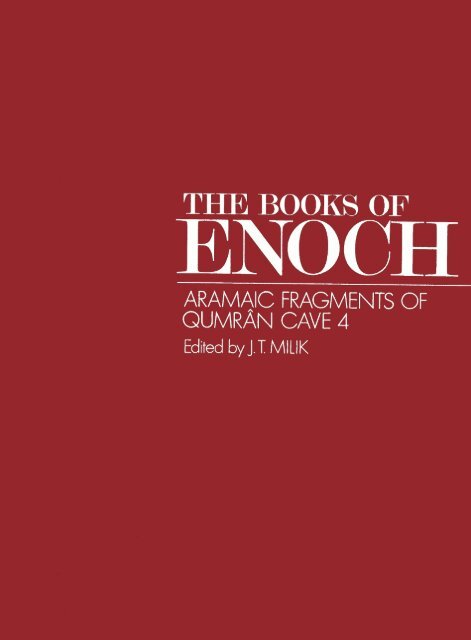



The Books Of Enoch Aramaic Fragments Of Qumran Cave 4
John was the first book the author translated in 06 in The Aramaic English Interlinear NT, and then in 07 as part of the Original Aramaic New Testament in Plain English Aramaic was the language of Jesus of Nazareth ("Yeshua Netsarya" in Aramaic) and of his twelve disciplesJohn 316 is only one of the passages the universalists have used to erroneously propup their unsound theory No doubt, it has been the universalists, past and present, who have dubbed John 316 as the "golden text" of the Bible Using Yahweh's Word in such aSuffice it here to say that the Peshitta NT plus Gwynn's edition of The General Epistles and Revelation are demonstrated to be the original autographs of the Apostles The Aramaic text presented in The AramaicEnglish Interlinear NT is what I believe is the letter perfect Divinely written original word of The Living God Bauscher, Glenn David




The Story Of Jesus And His Love For You The Passion Translation Tpt Simmons Brian Amazon Com Books




Nanay And Her Lover An Aramaic Sacred Marriage Text From Egypt Journal Of Near Eastern Studies Vol 76 No 1
John 16 John 16 is the sixteenth verse in the twentieth chapter of the Gospel of John in the New Testament of the Bible The verse describes the moment that Mary Magdalene realizes that Jesus has returned from the dead, when she recognizes his voice calling her name2 Here is an invitation for them to petition It is thought sufficient if great men permit addresses, but Christ calls upon us to petition, John 1624;The New Testament was originally written in Greek Not Hebrew, not Aramaic, but Greek The Old Testament, on the other hand, was originally written in Hebrew, though the following portions of the OT were originally in Aramaic Genesis 3147 (2 words), Jeremiah 1011;
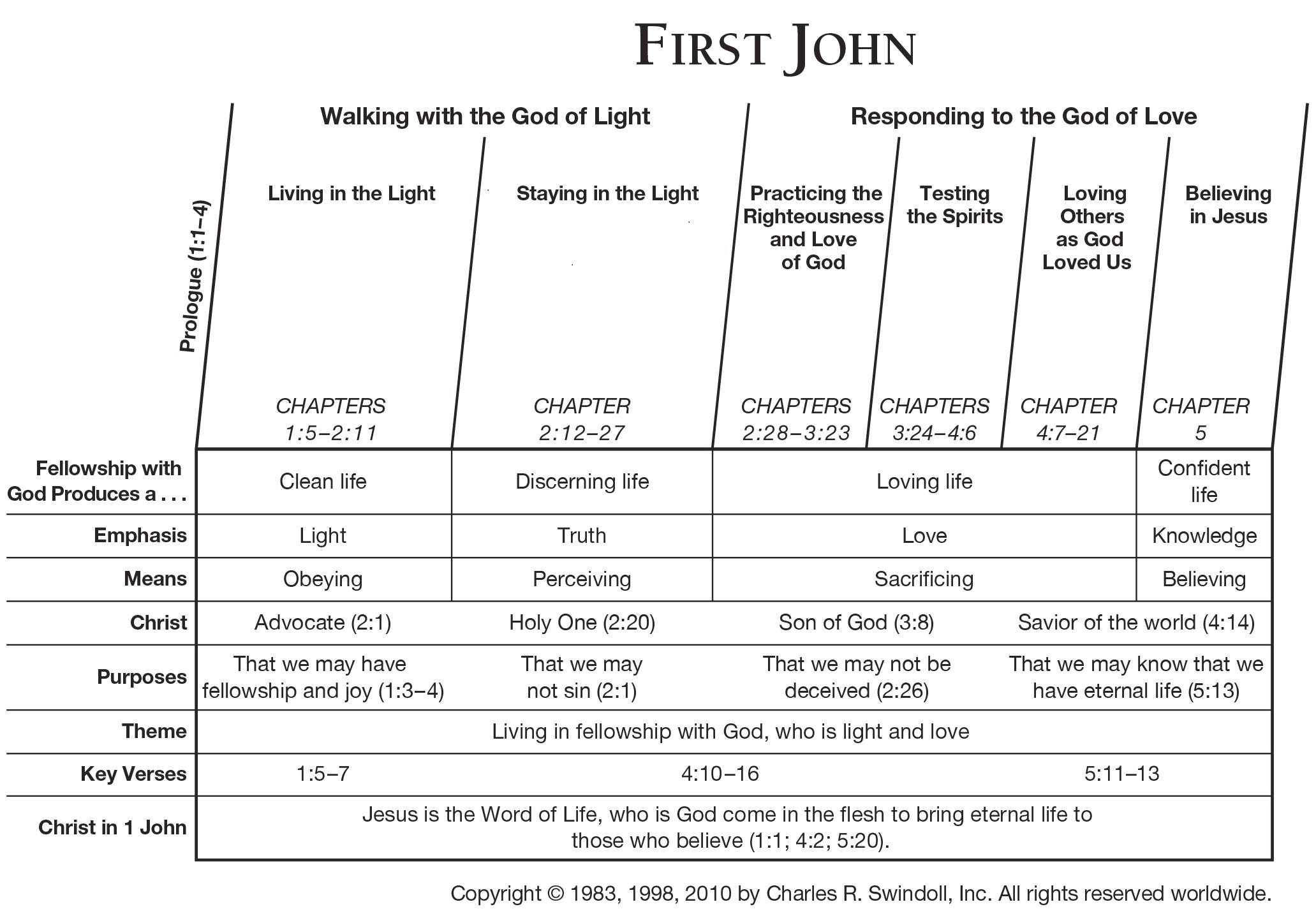



1 John 2 1 6 Commentary Precept Austin




Paul The Apostle Wrote Hebrews
A closer look at John 128 in the Aramaic Peshitta Consistent Aramaic Grammar Beautifully Harmonizes in the Original Text by Greg Glaser ^the side of _), which is used elsewhere in the fourth gospel (eg, John 323, John 45, John 623) According to Matthew 3712 though, JB did baptize Pharisees For more on this point




First Baptist Church Minco Ok What We Believe
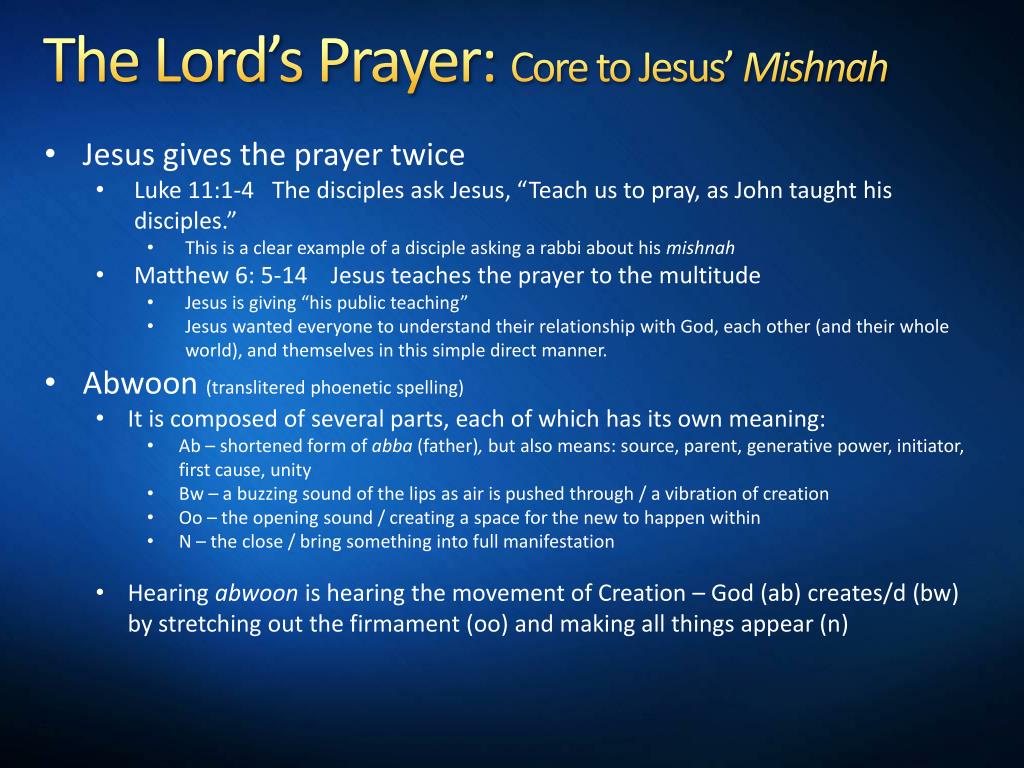



Ppt Exploring The Lord S Prayer In The Aramaic Powerpoint Presentation Id




Writing Angels Astronomy And Aramaic In The Early Hellenistic Age Chapter 3 Demons Angels And Writing In Ancient Judaism




Elohim Wikipedia




Scripture In Aramaic Renewal Journal




Aramaic Bible In Plain English Tumblr Posts Tumbral Com




Prayers Of The Cosmos Reflections On The Original Meaning Of Jesus S Words By Neil Douglas Klotz



Silo Tips Download Peshittant




What Languages Did Jesus Speak



Www Prunch Com Br Wp Content Uploads 18 09 Aramaic Priority Pdf




Scripture In Aramaic Renewal Journal




Hebrew Aramaic Words In The Greek New Testament Bibtheo




A Concise Hebrew And Aramaic Lexicon Of The Old Testament English Hebrew And Aramaic Edition Holladay William L Holladay William L Amazon Com Books



1




Aramaic Bible New Testament Gospel Of Matthew




Just Pray Living Energeia




Gregg Braden With Regard To The Power Of Prayer A Comparison Of The Modern Biblical Version Of Ask And You Shall Receive For Example With Its Original Text Gives Us An




The First Book Of Maccabees In Syriac Dating And Context In Aramaic Studies Volume 18 Issue 1




Chapter 8 Inscribing The Good News The Run Up To Mark In His Pen And Ink Are A Powerful Mirror
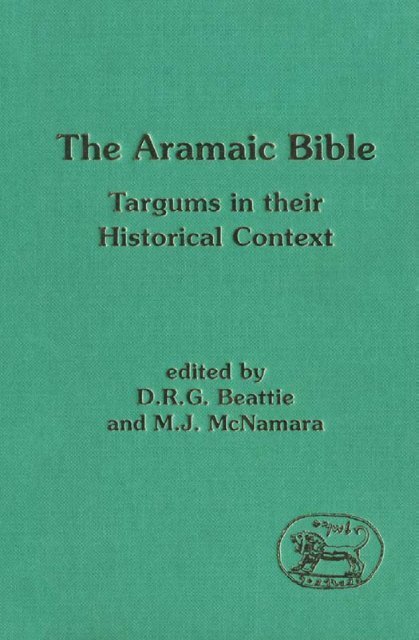



The Aramaic Bible Targums In Their Historical Context




Prayers Of The Cosmos Reflections On The Original Meaning Of Jesus S Words By Neil Douglas Klotz




The Story Of Jesus And His Love For You The Passion Translation Tpt Simmons Brian Amazon Com Books




Dead Sea Scrolls Wikipedia



Repository Upenn Edu Cgi Viewcontent Cgi Article 1129 Context Dropsietheses




John 16 23 In That Day You Will Not Question Me About Anything Truly Truly I Say To You If You Ask The Father For Anything In My Name He Will Give It
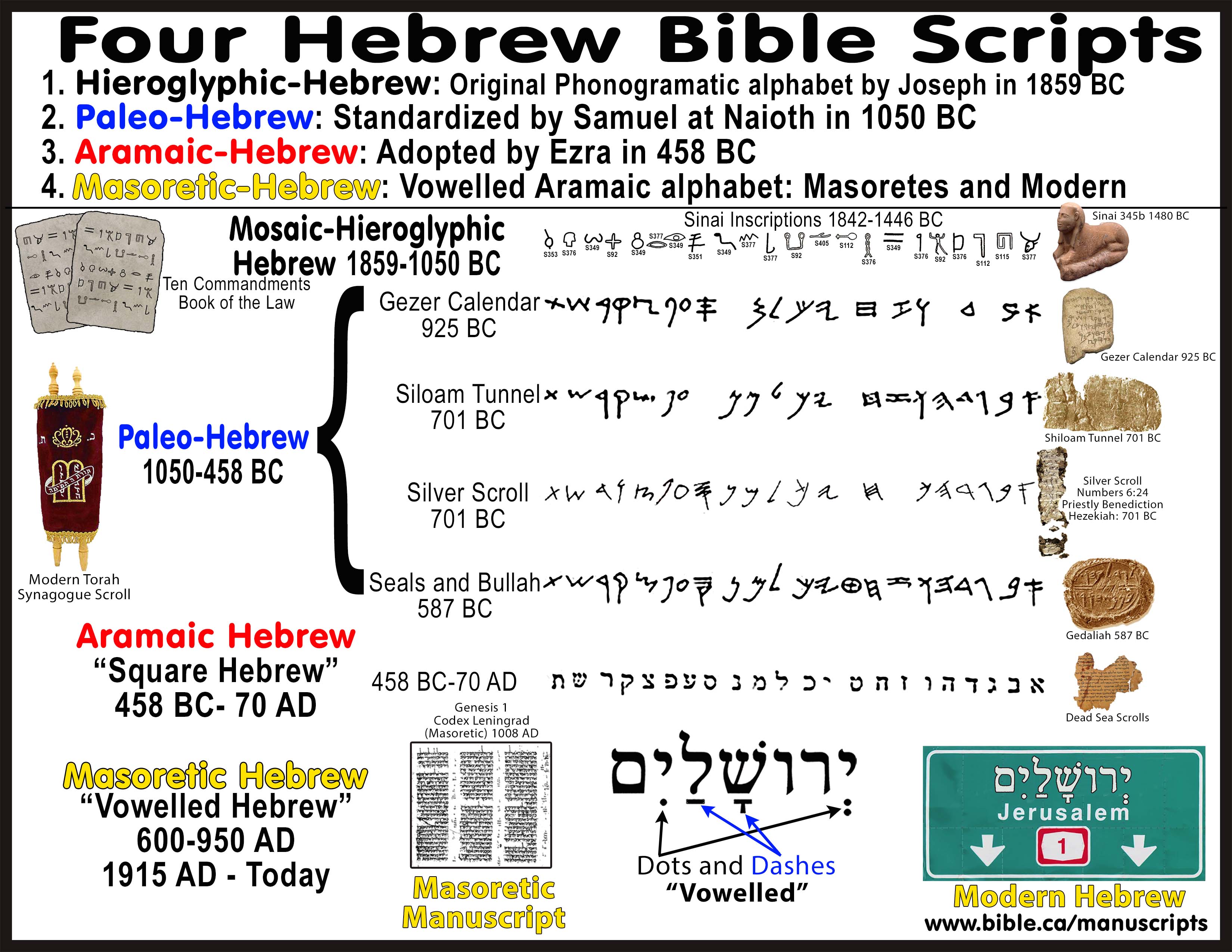



Quattuordecim Xiv Ezra Translated The Paleo Hebrew Manuscripts Into Aramaic Hebrew 458



3




Chapter 28 John 21




God In Aramaic Bible Youtube




Joseph A Fitzmyer A Wandering Aramean Collected Aramaic Essays 1979 Pdf




A Concise Hebrew And Aramaic Lexicon Of The Old Testament English Hebrew And Aramaic Edition Holladay William L Holladay William L Amazon Com Books




The Covid Vaccine Has 666 Written All Over It And Why That Doesn T Matter According To Revelation




West Aramaic Elements In The Old Syriac And Peshitta Gospels Jan Joosten Academia Edu




The Born Again Narrative In John 3 An Aramaic Impossibility Well No Katachriston




Prayers Of The Cosmos Reflections On The Original Meaning Of Jesus S Words By Neil Douglas Klotz



If Jesus Spoke Aramaic What Word Did He Likely Use For God Quora




Hebrew Aramaic Words In The Greek New Testament Bibtheo




Advances In The Study Of Biblical Hebrew And Aramaic By Zondervan Academic Issuu



Scholar Csl Edu Cgi Viewcontent Cgi Article 1212 Context iv



Www Jstor Org Stable




Where Does Jesus Say I Am God In The Aramaic Bible




Scripture In Aramaic Renewal Journal




The Case Of The Missing Verse John 5 4
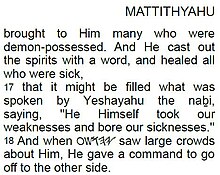



Sacred Name Bible Wikipedia




Introduction To John Evidence Unseen




Matthew 16 Commentary Precept Austin
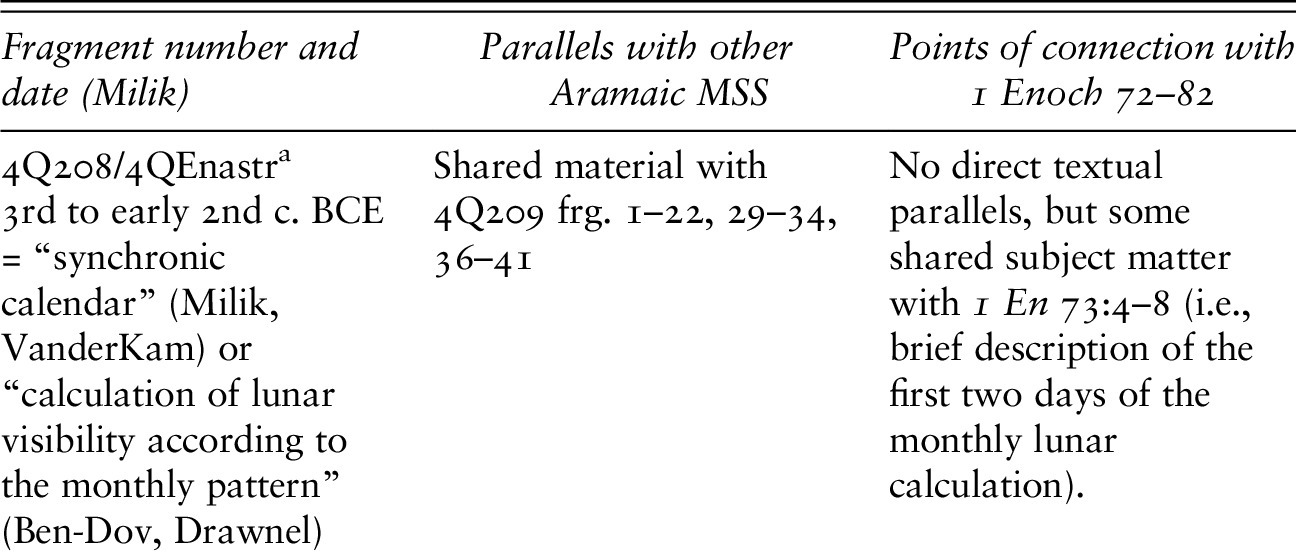



Writing Angels Astronomy And Aramaic In The Early Hellenistic Age Chapter 3 Demons Angels And Writing In Ancient Judaism




New World Translation Of The Holy Scriptures Wikipedia




Pdf G00g Hebrew Aramaic Not Greek Will Brinson Ferguson Academia Edu



Repository Upenn Edu Cgi Viewcontent Cgi Article 1129 Context Dropsietheses



Repository Upenn Edu Cgi Viewcontent Cgi Article 1129 Context Dropsietheses




Writing Angels Astronomy And Aramaic In The Early Hellenistic Age Chapter 3 Demons Angels And Writing In Ancient Judaism
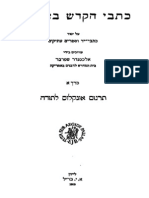



Aramaic English New Testament Appendix Pdf Pdf Koine Greek Paul The Apostle
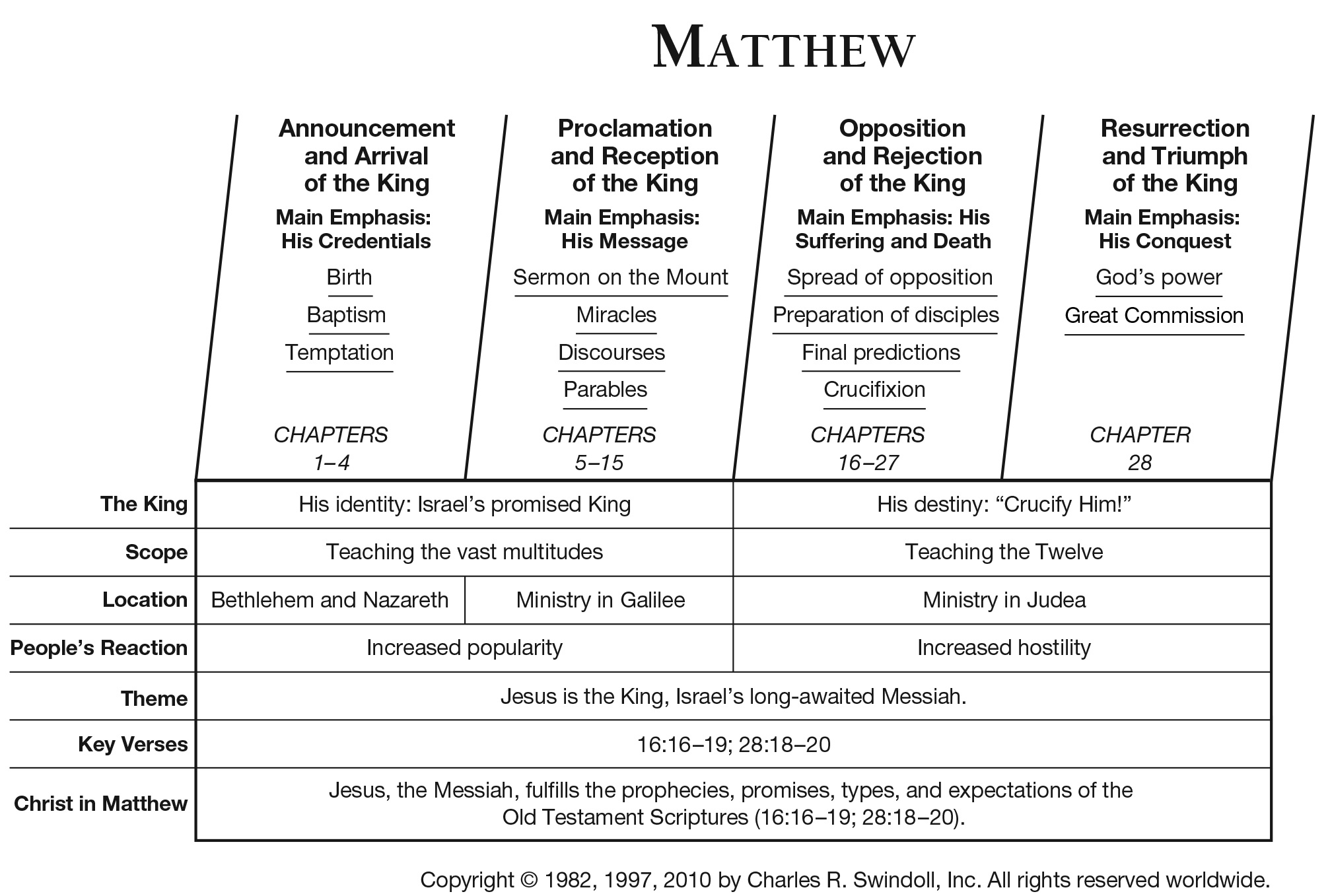



Matthew 16 Commentary Precept Austin



Alisa Childers I Blog




Aramaic Wikipedia




John 16 23 24 In That Day You Will Ask Nothing Of Me Truly Truly I Say To You Whatever You Ask Of The Father In My Name He Will Give It To You




Aramaic Wikipedia



The Lord S Prayer In Galilean Aramaic The Aramaic New Testament




Hebrew New Testament And Aramaic New Testament




Peoples Of The Ot Arameans Ppt Download




John 16 23 24 In That Day You Will Ask Nothing Of Me Truly Truly I Say To You Whatever You Ask Of The Father In My Name He Will Give It To You




Hebrew Israelite Calendar 21 22 Kingdom Preppers




Chapter 1 Introduction In Judeans In Babylonia



2




Aramaic The Language Of Jesus Posts Facebook



Speech Act Reading Of John 9 Chapter 4
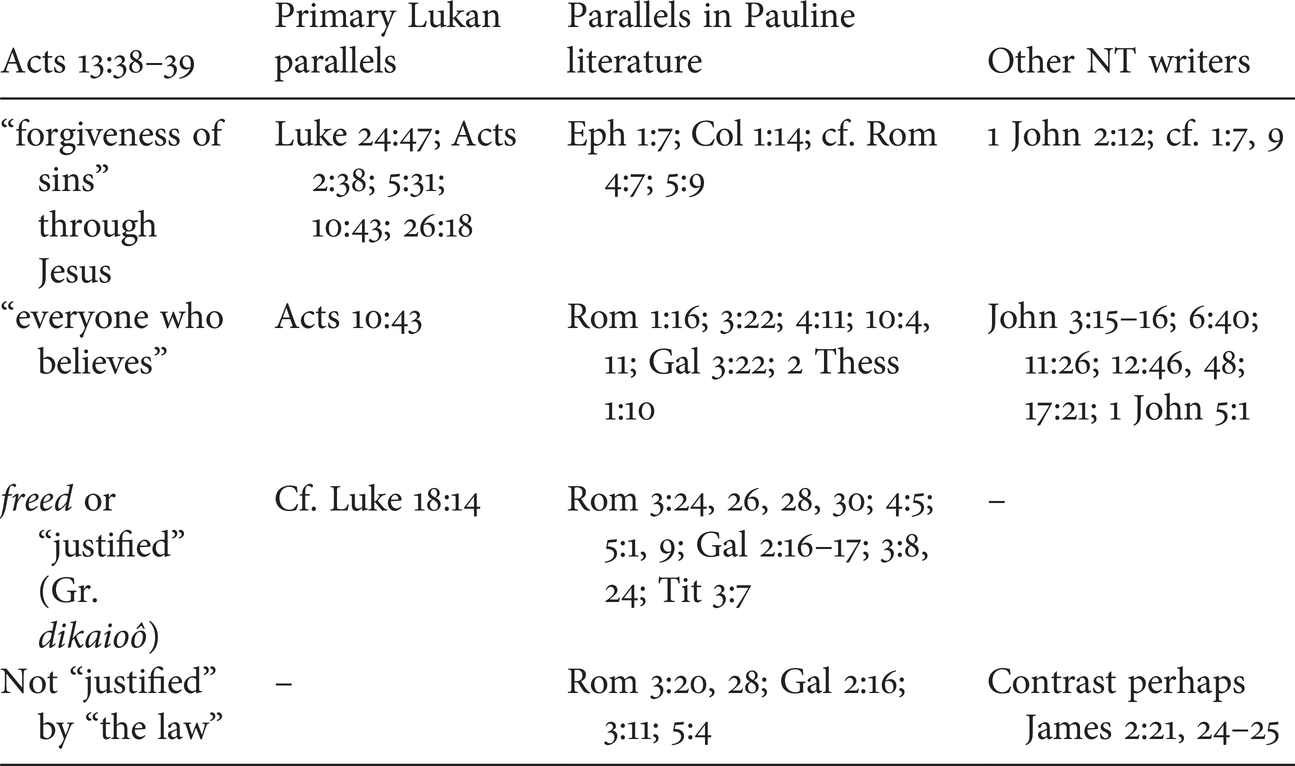



Commentary Iii Acts




Aramaic New Covenant Issues John 1 18 Who Was Only Begotten The Son Or Theos



Http Eaglefeather Org Pages Language Pdfs Didyouknow Language Pdf



Library Oapen Org Bitstream Id 4d9c2d3f D929 4640 98ff 18ebc776dcaa Webready Content Text Pdf




Aramaic Of Qoran Temp




Bible Ministries International



Http Tmcdaniel Palmerseminary Edu Clarifying new testament names words and shem tob S gospel of matthew Pdf



0 件のコメント:
コメントを投稿